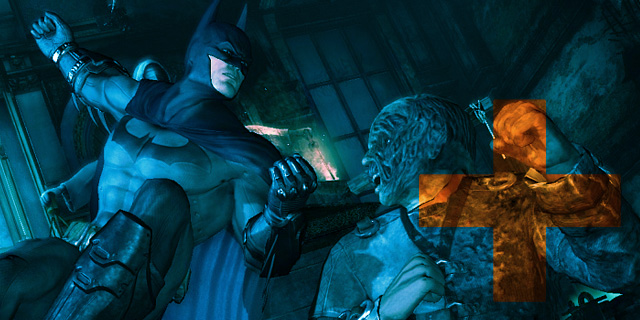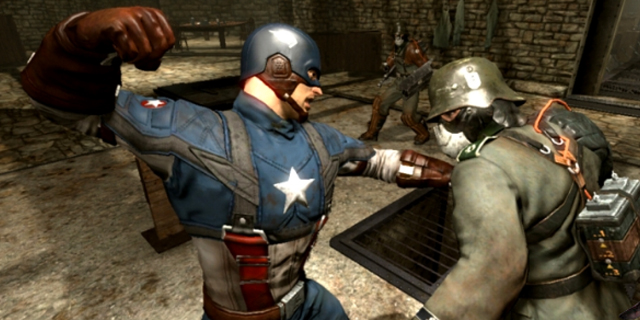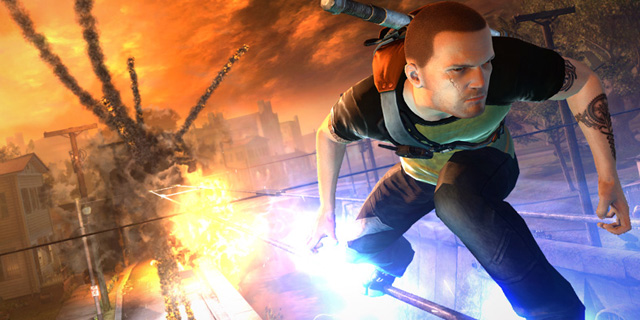
You grab your equipment, strap on the utility belt, and make sure your cape is adjusted all before putting on the mask. You are a superhero. Actually, you’re not, but you really want to be. Games have been trying to get players into the role of superheroes for years, but very few have actually been able to accomplish that feeling of truly being behind the mask. It’s not an easy task to accomplish, although some recent releases have proven that, with the right ideas in place, you can make the player believe he has powers too.
It’s hard to imagine a time without superheroes in games, as they have almost always been there. From the early days of Superman on the Atari 2600, developers have been desperately trying to capture the feeling of what it would be like to take control of a superhero. During these days, it was rare when a game could actually be more than just a side-scroller with a generic character that looks like Batman, or Spider-Man, or the X-Men. Actually, it was practically impossible. Not all superhero games from this era were bad (far from it), but the limited technology was the biggest roadblock in creating a true superhero experience.
Let’s first examine what it means to create a truly engaging superhero experience. First, you need the hero themselves. They have to look the part, sound the part, and have all of the abilities and/or gadgets at their disposal. They have to know how to use these powers or abilities, thus making an engaging tutorial for the player a little more difficult to design. Most importantly of all, they have to control like the developers think that character would control. How they would walk, run, fly, swing, glide, etc. With the right effort, you can make the mere act of controlling your hero compelling.

There is a small problem with that, however: heroes are strong. They are super, after all. There always needs to be a way to make the characters feel powerful in one way or another, but not so powerful that they can tear through every enemy you throw at them. This is the reason why we haven’t seen a good Superman game yet. He’s just too strong, and although he has a decent cast of villains that could oppose him, that’s not enough. It’s a tough balance to get right, but that’s why some superheroes just aren’t meant to be in games. I feel Superman is one of them. Hopefully, someday, I’ll be proven wrong.
The next thing you need is the environment. If you want to make a good superhero game, make it open world in some capacity. You don’t need a large city to roam around in, just an area that you can explore at almost any time. Locking the player into specific levels all of the time was passable back in the day, but since the days of Spider-Man 2, standards have changed. Batman: Arkham Asylum was able to create a believable locale for Batman to traverse without it being too large.
Linearity is great for some games, but in order to convey to the player that they have true control over this character, they need to have a sense of freedom. Swinging around the city in Spider-Man 2 is still some of the most fun I’ve had playing as a superhero in a game, and it has only recently been topped by Batman: Arkham City’s gliding mechanics. There’s nothing wrong with letting the player enjoy their time just messing around in an open environment without any real goal or motivation; the best games will allow players to do that as soon as possible.
You also need to have a good cast of villains. Since games are much longer than films, the capacity for characters is much larger. Because of this you will often find games with a cavalcade of villains, each there to stop your hero for one reason or another. They need to have believable motivations (at least believable to fans of the comics) and also pose a threat to the hero, even if it isn’t a direct threat. Lex Luthor could never take on Superman in a fight, but he always has a scheme ready for him. If you create a situation where the villain provides some kind of challenge to the hero, even one that involves innocents the hero needs to save, then you can successfully create a good villain encounter. Do this with multiple villains and you will have a large, well-rounded cast of characters.

And that brings up another thing developers need to learn: not every villain encounter needs to be a boss battle. Both Batman: Arkham Asylum and Arkham City did this excellently, with some bosses making for perfect fights, while others had to be taken down in other means. Sure, Arkham Asylum faltered a bit with the final boss, but they managed to pull it off relatively well regardless. Create new and creative scenarios that allow the player to stretch their imagination and use the full extent of the heroes’ powers.
One last thing: it shouldn’t be tied down by a license. Just because it’s tied in with an upcoming film doesn’t mean the game has to follow the film’s story or even rely on the same characters. The developer needs the hero, of course, but they can also go off and craft their own story that might be a prequel (or direct sequel) to the events of the film, allowing for more freedom. While it’s far from perfect, X-Men Origins: Wolverine is a great example of this. The developers were going for a full-blown M rating to get across the sheer brutality of playing as Wolverine.
I’ve pretty much listed every major game that really creates an authentic superhero feeling, despite some shortcomings. I’m not saying that other good superhero games don’t exist; they do, they just aren’t the same. You might be the biggest Marvel Ultimate Alliance fan in the world, but it never really makes you feel heroic. Sure, the powers are there, but they’re restricted in such a way that you never feel like you’re truly wielding them. It’s a compromise based on the type of game it is, so it’s understandable.
Superhero games can be fantastic if they’re done just right, but so few have been. There is, however, still hope. Not only are there still a few enjoyable licensed superhero games out there, but there are also some great original ones as well, like Prototype and the inFamous series. Despite games like Thor: God of Thunder existing, there will always be that one great superhero experience that makes it all worthwhile.



















